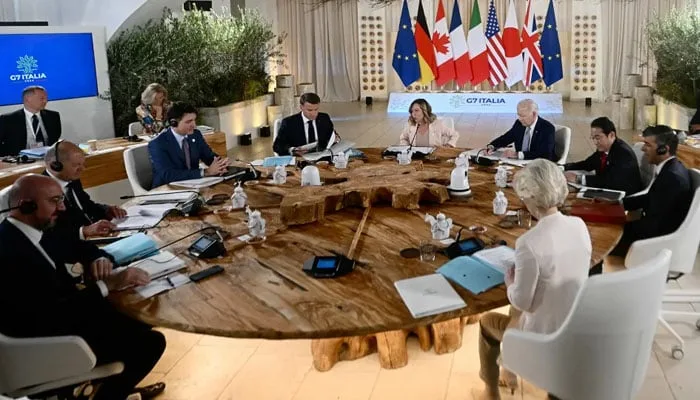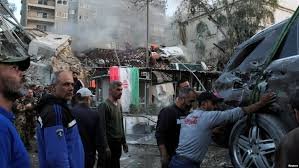The G7 countries have leveled serious accusations against China, claiming that its support for Russia is exacerbating the ongoing conflict in Ukraine. This significant allegation came to light during a high-profile G7 summit held in Italy on Friday. The meeting saw the participation of heads of state from the USA, UK, France, Canada, Germany, Japan, and the host nation, Italy.
Strong Stance Against China
At the summit, the G7 leaders adopted a firm stance against China, highlighting its alleged role in supporting Russia’s defense industrial base. They asserted that China’s assistance is enabling Russia to sustain its illegal war in Ukraine, which has profound and far-reaching security implications. This support, they argued, is crucial in helping Russia continue its military operations despite international condemnation and sanctions.
Calls for China to Cease Military Support
The G7 countries collectively demanded that China halt the supply of arms and other military equipment to Russia. They warned that if China continues to support Russia’s defense sector, Chinese enterprises could face a range of sanctions. This statement underscores the G7’s resolve to isolate Russia economically and militarily, aiming to cut off its access to critical resources needed to wage war.
Historical Context of the Russia-Ukraine War
The conflict between Russia and Ukraine began in February 2022, and it has since evolved into a devastating war with significant human and geopolitical consequences. According to reports, the war has resulted in the deaths of more than 50,000 Russian soldiers and over 31,000 Ukrainian soldiers. The war has not only caused immense loss of life but also led to widespread destruction and displacement, drawing global attention and prompting international efforts to resolve the conflict.
G7’s Financial Support to Ukraine
In addition to condemning China’s actions, the G7 has taken concrete steps to support Ukraine. One notable measure is the approval of a $50 billion loan to Ukraine, funded by Russia’s frozen assets. This financial aid aims to bolster Ukraine’s defense capabilities and support its economy amidst the ongoing conflict. The G7’s decision to use Russia’s frozen assets for this purpose signifies a robust response to Russia’s aggression, leveraging financial resources to aid Ukraine.
Potential Sanctions on China
The G7’s warning to China about potential sanctions is a critical element of their strategy. By threatening economic penalties, the G7 aims to pressure China into reconsidering its support for Russia. Sanctions could target various sectors of China’s economy, including its defense industry, financial institutions, and major enterprises involved in the arms supply chain. The prospect of such sanctions adds a layer of complexity to China’s foreign policy decisions, potentially influencing its stance on the Ukraine conflict.
Broader Implications for Global Security
The G7’s accusations against China and their demands for cessation of military support to Russia highlight the broader implications for global security. The support of major powers like China in conflicts such as the one in Ukraine can significantly alter the balance of power and prolong hostilities. The G7’s actions reflect a concerted effort to mitigate these risks and promote a resolution to the conflict.
The Role of International Alliances
The G7’s united front against China’s support for Russia underscores the importance of international alliances in addressing global conflicts. By coordinating their policies and leveraging their collective economic and political influence, the G7 countries aim to exert maximum pressure on both Russia and China. This approach illustrates the potential of multilateral cooperation in enforcing international norms and deterring aggressive actions by state actors.
Looking Ahead
As the war in Ukraine continues, the G7’s strategy of combining financial aid to Ukraine with diplomatic and economic pressure on Russia and its supporters remains a critical component of their response. The effectiveness of these measures will depend on the cohesion and resolve of the G7 countries, as well as the responses of Russia and China to the mounting international pressure.
The G7’s accusations against China for supporting Russia’s war efforts in Ukraine mark a significant development in the ongoing conflict. By taking a strong stance and threatening sanctions, the G7 aims to curtail China’s support for Russia and bring about a resolution to the war. The outcome of these efforts will have profound implications for the future of the conflict and the broader geopolitical landscape.



